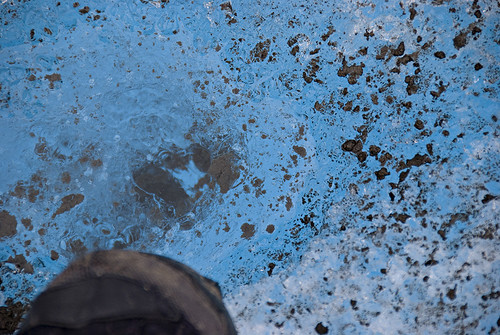
I'm probably not alone in imagining a fictional version of this soon-to-be-reality news story. Fast forward a few years, and fresh water supplies will be more important to the politicians and chattering classes than abortion, Israel-Palestine wars, illegal immigration, or any other contemporary news story. When fresh water costs more than wine, or artificial blood, tensions between regions of the US will increase to the boiling point, ahem. Even though climate change means there is less water in the Great Lakes, there is still lots of it.
Western, Southern states covet Midwest resource
While the West burns and the Southeast bakes, there is little to suggest a large-scale, climatological catastrophe playing out any time soon in the Midwest. In fact, farmers in Iowa and Minnesota had trouble last week harvesting their corn and soybean crops because there had been too much rain.
But potentially huge battles over water are looming in the Great Lakes region as cities, towns and states near and far fight for access to the world's largest body of fresh surface water, all of it residing in the five Great Lakes. [snip]
New Mexico Gov. Bill Richardson, a Democratic candidate for president, gave voice to his water lust early this month by suggesting that water from the Great Lakes could be piped to the rapidly growing -- and increasingly dry -- Southwestern states.
"States like Wisconsin are awash in water," Richardson told the Las Vegas Sun.
Richardson soon backed off after swift protests from the Midwest, including a resounding "No" from Michigan's Democratic Gov. Jennifer Granholm.
That won't be the end of it. The fires in Southern California, the prolonged drought in the Southeast and the shrinking flow of the Colorado River, which feeds seven Western states, have underscored the importance of water supplies in rapidly developing regions and the determination of a handful of states to hold on to a resource they see as key to their economic future.
With fresh water supplies dwindling in the West and South, the Great Lakes are the natural-resource equivalent of the fat pension fund, and some politicians are eager to raid it. The lakes contain nearly 20 percent of the world's surface fresh water.
"You're going to see increasing pressure to gain access to this [water] supply," said Aaron Packman, a professor of civil and environmental engineering at Northwestern University. "Clearly it's a case of different regional interests competing for this water."
Eight Great Lakes-area states, from Minnesota to New York, and two Canadian provinces have proposed a regional water compact that would, among other things, strengthen an existing ban on major water diversions outside the Great Lakes Basin, home to 40 million Americans and Canadians. That proposal still has to work its way through several legislatures, and then it must go to Congress, where the political balance of power has been tilting west and south for decades.
[From Great Lakes key front in water wars]
I also don't think Nestle should be allowed to suck water out of the Great Lakes, bottle it, and sell it. Who green-lighted this theft of public resources?
In Michigan, Granholm fought with Nestle Waters North America over the company's pulling millions of gallons from Lake Michigan for its Ice Mountain bottled-water franchise. The state has negotiated limits on the amount the company can pump.
Dick Armey, in his smarmy manner, let slip the truth:
'We're going to be stealing it'
When he was House majority leader, then-U.S. Rep. Dick Armey (R-Texas) warned a gathering in Michigan that federal control of Great Lakes water would not be in the state's interest.
"We're not going to be buying it. We're going to be stealing it," Armey said in 2000. "You're going to have to protect your Great Lakes."
